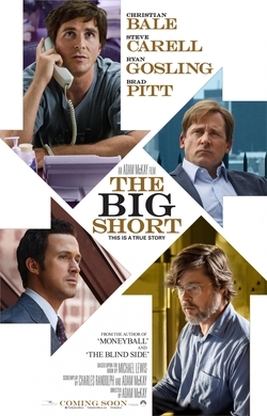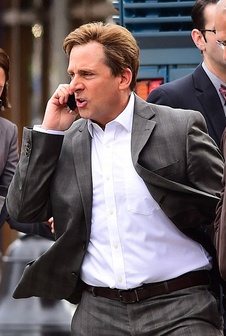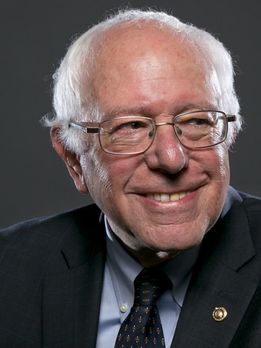 I’m writing about The Big Short because I think it is important. In fact I think it is one of the most important films to be produced in a long long time. If you haven’t seen it yet, do yourself a favour and go watch it asap. The film is like a good fisherman - it patiently pulls you in closer and closer with the gritty details but knows when a little bit of slack is needed to let you laugh and take a breather. Before you know it, you are well educated on Mortgage Bonds, CDOs and a mess of other financial instruments but also equally excited and horrified to find out more. While the film is a comedy of sorts, the financial crisis of 2008 that the plot details is far from a laughing matter. But the extremely dark and laughably corrupt reality that the movie portrays probably needs a good dose of humour to be swallowed with any kind of positivity. Stemming from an incredibly witty screenplay, and based off the Michael Lewis book from which it inherited it’s title, it makes one of the most mundane and complicated subjects (Wall Street Finance) both appetizing and digestible. And just like after a big meal in real life, we get to see the massive pile of shit that results.  The director Adam McKay, who also co-wrote the screenplay, does an incredible job of keeping the viewer interested while consistently moving the plot forward. Whether it is using celebrity cameos to explain difficult financial concepts, or Jared Vennett (Ryan Gosling) interacting directly with the audience, McKay manages to make the audience a part of the story. This effect is all the more relevant considering that we really are all apart of this story; this has deeply affected every single person in the world. Although the film is based off a true story and depicts it very accurately, McKay's direction often has a feeling of unreality. It is filled with shots that can seem to move just a little too slow or too fast, along with cuts that slightly overlap with themselves. This leaves your view of time somewhat fragmented giving parts of the movie an almost fantastic or dreamlike feel. This speaks to the ridiculousness that THIS ACTUALLY HAPPENED - at moments you just want to pinch yourself as if to wake-up from this bad dream. While Cristian Bale’s portrayal of the eccentric Michael Burry stands out as the most unique performance in the film, it is another character that really drives the story forward: Steve Carell has managed to follow-up his insanely creepy performance from Foxcatcher with another absolutely beauty, further cementing is reputation that he is more than just 'a funny guy'. Throughout his portrayal of Mark Baum, he manages to harness the same awkwardness that made him famous in The Office while bringing an incredibly dark cynicism we haven’t seen before. Our brash, quasi hero clearly does-not-give-any-fucks as he gets to the bottom of the worldwide financial collapse before it even happens. Whether it is interrupting a massive conference speech before walking out, or getting into a screaming match of ‘Fuck You!’ for a cab, you can’t help but root for the guy while at the same time also being glad you have never met him. As Mark and his team uncover the many layers of corruption, greed and stupidity that led to the world-wide economic collapse, we are constantly teased with powerful symbolism of the larger themes at hand - the fraudulent and shallow nature of our entire society and the even more disturbing fact that no-one seems to care. At times we see it in more subtle ways like the flashing of a Ludacris music video while Burry lands deals with the big banks. At first this gives the feeling of power and success for Burry but also has us reflecting on the shallowness of our money-centric culture. At other times Mark Baum throws it at us more directly, exclaiming to his wife that: ‘It is a Shitstorm out here sweetie, you have no idea the kind of crap people are pulling and everyone is walking around like they’re in a goddamn Enya video… Everyone is getting screwed and all they care about is the ballgame or what actress just went into rehab.’  Additionally, the movie soundtrack is packed with tons of fitting pieces but one mix really stands alone above the rest: As Baum and crew head to vegas to meet the bankers who have been selling these apparently awful investments, we are blasted with the organ from Phantom of the Opera which leads into a heavy Run The Jewel’s verse and finishes smoothly with Wayne Newton’s classic, Danke Schoën. How perfectly it symbolizes the entire Collapse: The Phantom that no-one could (or chose to) see coming, RTJ’s rage against the system that allowed it, and the eventual lullaby from Mr.Vegas literally saying ‘Thank you very much’ (for your money) while assuring us that everything is alright. As the collapse is finally imminent we can see characters flicking through TV channels that flash between our societies idols like Barry Bonds and Lance Armstrong. All of it alluding to how fraudulent not only the banking world has become, but our society as a whole. Not just our politicians and institutions but even heroes are turning out to be fake right in front of our noses. But are our noses growing long just like theirs? Are we all also just living this same lie? One where image is far more important than substance and we are all somehow okay with that. For me this movie stands alone out of the oscar nominees. Although it could never challenge the breathtaking cinematography of the Revenant, I believe The Big Short should take home the award for best picture. It is timely, important, and managed to turn some very tough subject matter into an incredibly interesting and entertaining film. Stacked with a group of legendary actors it could have been easy for them to overshadow each other, but instead they find a fine balance together which is an absolute joy to watch. Finally and most importantly, Adam McKay’s direction is both creative and innovative in a subtle but expressive way. This coming from a man who’s previous directing experience exclusively included Will Ferrel comedies. While hollywood rarely seems to push cultural and political buttons in big ways these days, I can’t help but feel that The Big Short has to be a glorious outcast in that respect. Our generation of Hollywood moviemaking seems more and more focused on profits over creativity or cultural influence. Look no further then the 7 major comic book super-hero movies coming out this year including the 7th X-men movie in almost as many years. I can’t help but picture a bunch of Hollywood execs in a dark basement somewhere wringing the last drops of sweat and blood and money out of Spiderman’s used body. But this film can’t be seen as anything but a major cultural and political statement. To bring 3 of the biggest and hunkiest actors (Brad Pitt, Cristian Bale, Ryan Gosling) of our generation together for a based-on-a-true-story intellectual piece, is a statement of it’s own. But to produce and release this during US Primaries and ahead of a US Election that is coming this fall, is far from any coincidence. Whether this was mostly Brad Pitt’s brainchild or the work of a larger group it gives us some hope that Hollywood still has some balls to shake things up. It is hard to doubt that the film has already made an impact considering the growing distaste for both the US political and financial institutions - it seems people are starting to be sick an tired of getting the scraps. You have to look no further than at Bernie Sander’s rise from obscurity to his current standing where he is neck and neck with Hilary Clinton in the Democratic Primaries. Clinton has been the standalone favourite for this nomination since Obama beat her in 2008, and although Bernie is still an underdog, you have to admit that the times they’re a changing. The financial collapse of 2008 is far from a new mainstream subject, as it has been detailed on numerous occasions on This American Life as well as in the Oscar winning documentary, Inside Job. But never before have we been slapped so hard in the face with the reality of what happened - told to us by a slew of our generations favourite actors on the biggest stage in the world. Unlike it’s predecessor the Wolf of Wallstreet, which seemed to glorify WallStreet and had you rooting for a criminal in the end, The Big Short pulls no punches in letting you know who the crooks are. It leaves you feeling like a sheep, insists that you to get upset, and dares you to finally start to care and do something about it. One of the final scenes of the movie has two young traders who bet against the banks sneak into the Lehman Brothers after the collapse. As they investigate the deserted office they banter: ‘Well this isn’t how I pictured it.’ ‘What did you think we’d find?’ ‘I don’t know… Grownups.’ Conor DeReviewer |
